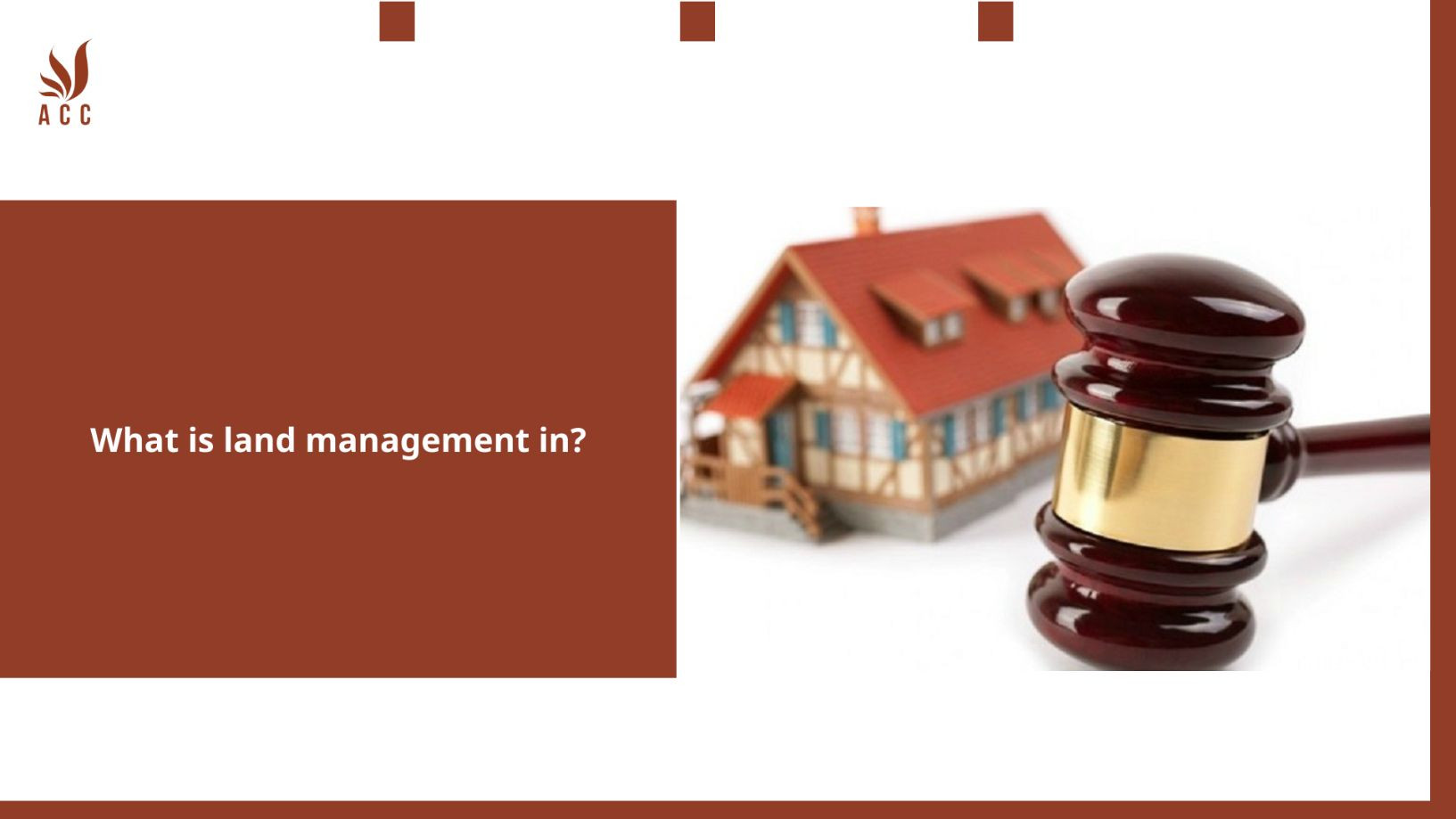Land management is the process of planning, controlling, and overseeing the use, development, and conservation of land and its associated resources. It encompasses a wide range of activities and responsibilities aimed at ensuring that land is used in a sustainable, efficient, and responsible manner. Land management is critical in both urban and rural settings and includes the following key areas:

1. Land Use Planning:
Land management involves developing plans and strategies for how land should be used, taking into consideration factors like urban development, agriculture, conservation, and infrastructure development. Land use plans help allocate land for various purposes and guide its development.
2. Land Development:
Managing land development activities, such as construction, urban expansion, and infrastructure projects, to ensure they comply with zoning regulations, environmental standards, and community needs.
3. Natural Resource Management:
This includes the sustainable use and conservation of natural resources on the land, such as forests, water bodies, wetlands, and minerals. It involves practices like sustainable forestry, watershed management, and habitat preservation.
4. Land Ownership and Property Rights:
Managing land records, land ownership rights, and property titles to ensure clarity, transparency, and legal protection for landowners.
5. Land Tenure Systems:
Administering land tenure systems, which govern how land is owned, used, and transferred. This can include various systems like private ownership, communal ownership, or land lease agreements.
6. Environmental Protection:
Implementing measures to protect the environment and prevent land degradation. This includes soil conservation, erosion control, and measures to safeguard sensitive ecosystems.
7. Urban Planning:
In urban areas, land management involves planning for urban growth, zoning regulations, housing development, transportation infrastructure, and public spaces.
8. Agricultural Land Management:
Ensuring the sustainable use of land for agriculture, optimizing crop and livestock production, and addressing issues like soil quality, irrigation, and agricultural sustainability.
9. When using ACC Law Firm's land-related services, entrepreneurs will receive
When using ACC Law Firm's land-related services, entrepreneurs will receive expert advice and assistance in navigating various legal aspects of land ownership and transactions. This includes guidance in property acquisitions, leases, zoning regulations, land use planning, and any other land-related legal matters. ACC Law Firm's team of experienced attorneys will provide personalized support to entrepreneurs, ensuring compliance with applicable laws and regulations, protecting property rights, and optimizing the value of their land investments.
10. Q&A
Question 1: What is land management?
Answer 1: Land management is the process of efficiently and sustainably overseeing the use, development, and conservation of land resources. It involves planning, regulating, and making decisions related to land use to ensure it serves economic, environmental, and social purposes.
Question 2: What are the key components of land management?
Answer 2: The key components of land management include land use planning, land allocation, land registration, land conservation, and compliance with land laws and regulations. It involves decisions on how land is used, who has access to it, and how it is protected or developed.
Question 3: Why is land management important?
Answer 3: Land management is crucial for several reasons:
- It helps prevent land degradation and ensures sustainable land use.
- It facilitates economic development and urban planning.
- It conserves natural resources and protects the environment.
- It supports property rights and land ownership, promoting social stability.
Question 4: Who is involved in land management?
Answer 4: Land management involves various stakeholders, including government agencies, landowners, developers, urban planners, environmental organizations, and communities. Government departments responsible for land management create policies, regulations, and plans, while other stakeholders play roles in land use and protection.
Nội dung bài viết:






Bình luận